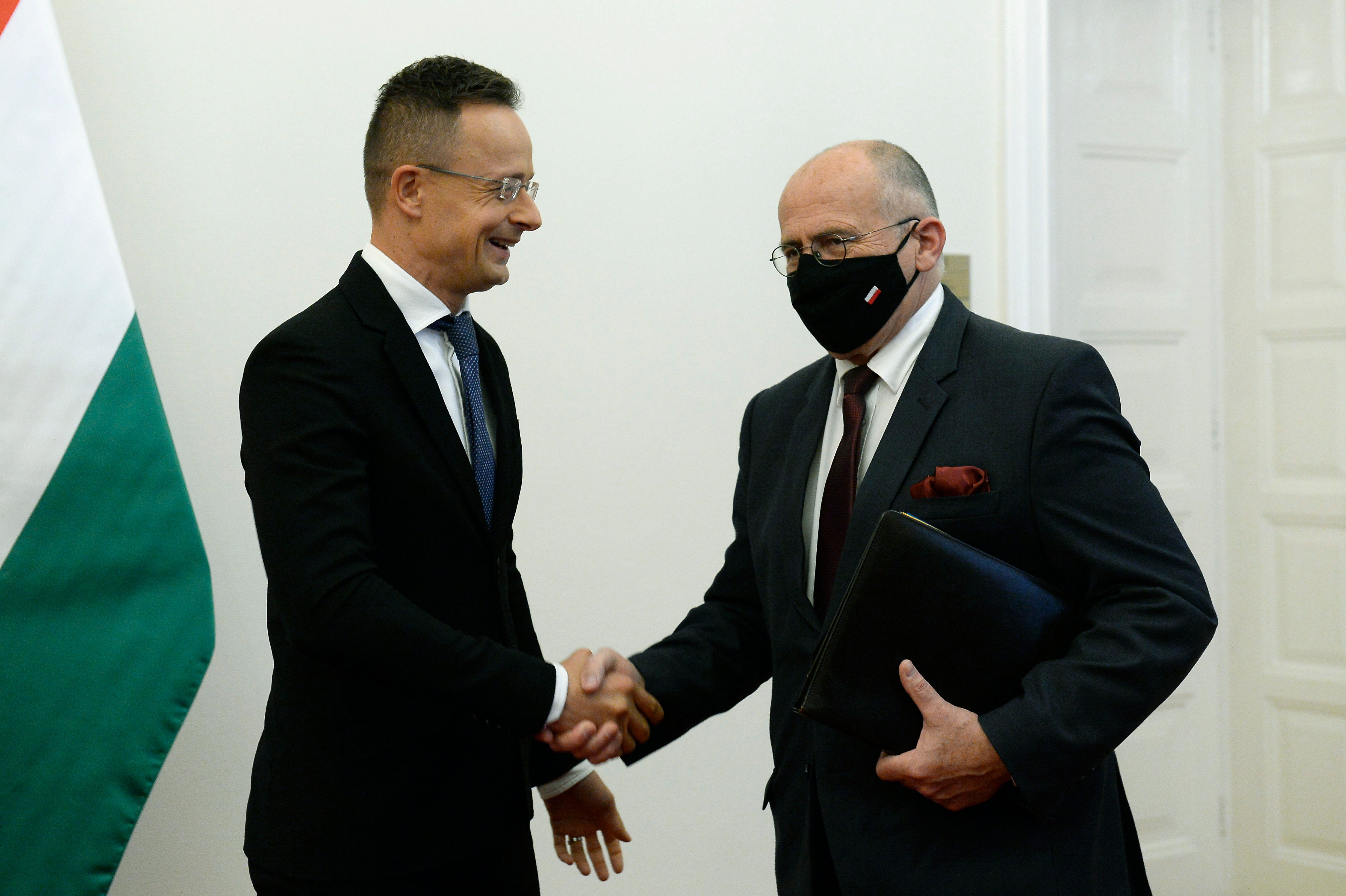Poland, Hungary hit back on democratic standards in the EU
Threatened with the potential loss of European Union funds over their records on democracy, and feeling like "punchbags," Poland and Hungary say they want to assess countries' adherence to the rule of law across the EU

Your support helps us to tell the story
From reproductive rights to climate change to Big Tech, The Independent is on the ground when the story is developing. Whether it's investigating the financials of Elon Musk's pro-Trump PAC or producing our latest documentary, 'The A Word', which shines a light on the American women fighting for reproductive rights, we know how important it is to parse out the facts from the messaging.
At such a critical moment in US history, we need reporters on the ground. Your donation allows us to keep sending journalists to speak to both sides of the story.
The Independent is trusted by Americans across the entire political spectrum. And unlike many other quality news outlets, we choose not to lock Americans out of our reporting and analysis with paywalls. We believe quality journalism should be available to everyone, paid for by those who can afford it.
Your support makes all the difference.Threatened with the potential loss of European Union funds over their records on democracy, and feeling like “punchbags,” Poland and Hungary are planning to assess how countries across the EU adhere to the rule of law.
The foreign ministers of the two nations said this week in Budapest that a new institute of comparative law will supply them with information on the state of democracy in every EU member, to prevent what they called “double standards.”
Announcing the plan on Monday, Hungary's Peter Szijjarto said, in his opinion, the policy that the two governments pursue based on Christian foundations is intolerable to the “international liberal mainstream.”
“The goal of the institute of comparative law is that we are not taken for fools,” Szijjarto said.
Polish opposition lawmaker Marcin Kierwinski was not impressed. He tweeted that the plan was “something like North Korea and Venezuela setting up an institute for the flourishing of capitalism.”
EU governing bodies say the two governments for many years have been violating the bloc’s rule-of-law standards and the EU is pursuing sanction procedures.
The sticking points in Poland are the government's steps to take control of the justice system, and especially the judiciary. In Hungary, it's a number of government-sponsored laws targeting media freedoms, minority rights, the electoral system and academic and religious freedoms.
One of the proposed sanctions is to link the level of EU funding for member states in the 2021-27 budget to their rule-of-law standards. Poland and Hungary are protesting that, saying they are not being assessed fairly.
Resulting from the debate, the European Commission has initiated a new mechanism, the “rule of law review cycle,” that vets the state of democracy and the rule of law in all its member state. The first report is to be published Tuesday and discussed at a news conference Wednesday.
In a recent interview for Germany's Der Spiegel magazine, EU Vice-President for Values and Transparency Vera Jourova said the picture drawn in the report is “alarming.”